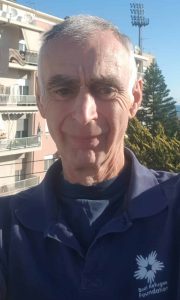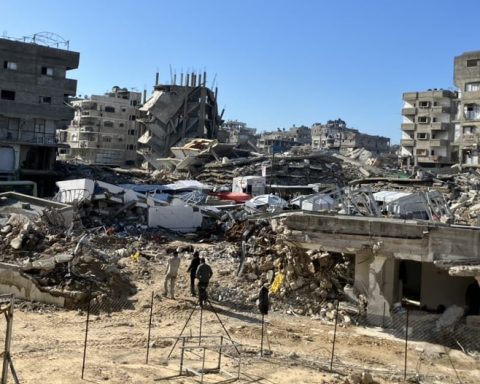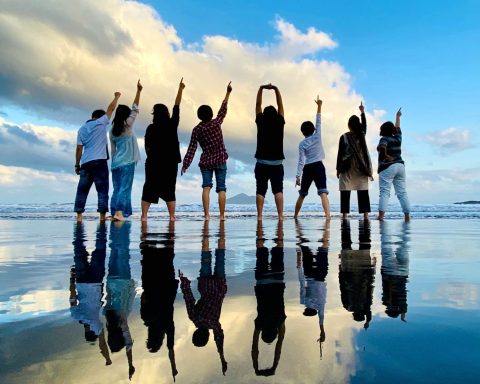 Brian Lambert is a GP principal who recently retired after working 30 years in a Co Durham practice
Brian Lambert is a GP principal who recently retired after working 30 years in a Co Durham practice
In October and November 2024, I spent six weeks volunteering as a ‘medic’ at the Mavrovouni refugee camp on Lesvos, working for the Dutch charity the Boat Refugee Foundation (BRF). Lesvos is a large island only a few miles from the Turkish coast and is one of the main landing sites for refugees making their way into Europe.
The camp is situated on a windy promontory a few km north of the island’s capital Mytilene. The population of the camp was falling as the government relocated residents to longer term camps on the mainland. Recently however, more asylum seekers have been crossing the Aegean and the camp population has swelled to over 2000. The typical refugee is a young male (about 50% of the total), but there are families and unaccompanied minors, and a few refugees are in their 70s.
Approaching the camp, one first notices a high fence topped with barbed wire.
Approaching the camp, one first notices a high fence topped with barbed wire. Usually there were about six security guards at the entrance. There were also several policemen and one or two large police vans. Residents have to sign to leave the camp, which they are free to do once formally registered. Most refugees live in UN Refugee Housing Units, which resemble tents.
The BRF facilities at the camp consist of a ‘hospitainer’ with two consulting rooms, one of which can be used for minor surgery, and a tent with two consulting ‘cubicles’ and a waiting area. The tent is pitched on gravel and is only a few metres from the water’s edge. A fine coating of dust penetrates everywhere, particularly in windy weather.
The clinic has its own dispensary for issuing small quantities of medication. Prescriptions are written for patients to take to the nearby charity-run pharmacy, which stocks a restricted formulary. There was a large selection of dressings, although finding the right one was sometimes difficult. There were frequent shortages of common drugs such as paracetamol and amoxicillin.
Patients seen were from numerous countries in the Middle East and North Africa, but Syrians and Afghans comprise the largest contingents. BRF provides Farsi and Arabic interpreters (most of whom were previously refugees themselves). Occasionally a surfeit of patients of one or other nationality meant a shortage of interpreters. On a few occasions I was compelled to use Google Translate, which was adequate for simpler consultations.
A shift at the clinic typically lasts six hours, from 5.30 to 11.30pm: usually there was a crowd waiting to be seen when we arrived. There are no appointments and the support worker has to try to maintain order in the waiting area. Typical reasons for attendance included upper respiratory tract infections and diarrhoea and vomiting. Injuries are frequent, some sustained during the journey through Turkey or while crossing the sea, but we were also told some injuries had been inflicted by border guards. Sea urchin spine injuries to the feet were common, also fish hooks in the hand – reflecting two of the few pastimes available to camp residents.
Occasionally more unusual diseases were encountered: we had cases of TB and possibly of Leishmaniasis and trachoma. Scabies and headlice were rife.
BRF operates an acute service only, so patients needing follow up were referred to other NGOs nearby, such as Medicines Sans Frontieres and Medecins du Monde. A few patients required admission to hospital in Mytilene by taxi or ambulance. Occasionally, ‘outreach’ visits were made into the camp – these had to be done with a police escort.
The volunteers were a mixture of nationalities, mainly Dutch, British, Irish and Portuguese, with six ‘medics’ (doctors, paramedics and nurses) posted to Mytilene at any one time, of whom four would be on duty on each shift. There were also two support volunteers, whose role included running the clinic reception, shopping, meeting new volunteers at the airport, etc, and two mental health workers. Most volunteers were young – about 30, but one or two were mid-career and one or two were retired.
The BRF facilities at the camp consist of a ‘hospitainer’ with two consulting rooms, one of which can be used for minor surgery, and a tent with two consulting ‘cubicles’ and a waiting area.
Our accommodation was near the centre of Mytilene and consisted of one large house with its own shaded courtyard, and three nearby apartments with a roof terrace. Generally, volunteers sleep in rooms for two – this presented no problems for me during my stay, but some of the bedrooms and bathrooms would have benefitted from a good clean. The accommodation was redolent of that in my student days, but overall, the standard of cleanliness was acceptable.
Lesvos is an interesting island, with varied landscapes including two enormous near-landlocked gulfs. There are good opportunities for walking and hiking. There are relatively few tourists and the island has avoided over-development. Nonetheless, the capital Mytilene has numerous bars and restaurants, with mainly Greek customers. The town is centred around a harbour which is always busy with freighters, ferries, coastguard and navy ships coming and going. There was free time to explore the surrounding countryside, and I had free use of one of the BRF cars.
I have to admit the application process was complicated: it was necessary to engage a notary who then arranged to send my medical diploma to London to obtain ‘apostille’, and then to obtain an official translation, however the BRF staff in the Netherlands were most helpful and gave advice online at each step of the process.
I was made most welcome when I arrived and was shown round the town by another volunteer. I was impressed by the sense of camaraderie engendered while working among this group of volunteers. Overall, I enjoyed my six weeks working in Mavrovouni and would not hesitate to recommend it to other GPs.
Featured Photo by Lydia Hague on Unsplash






